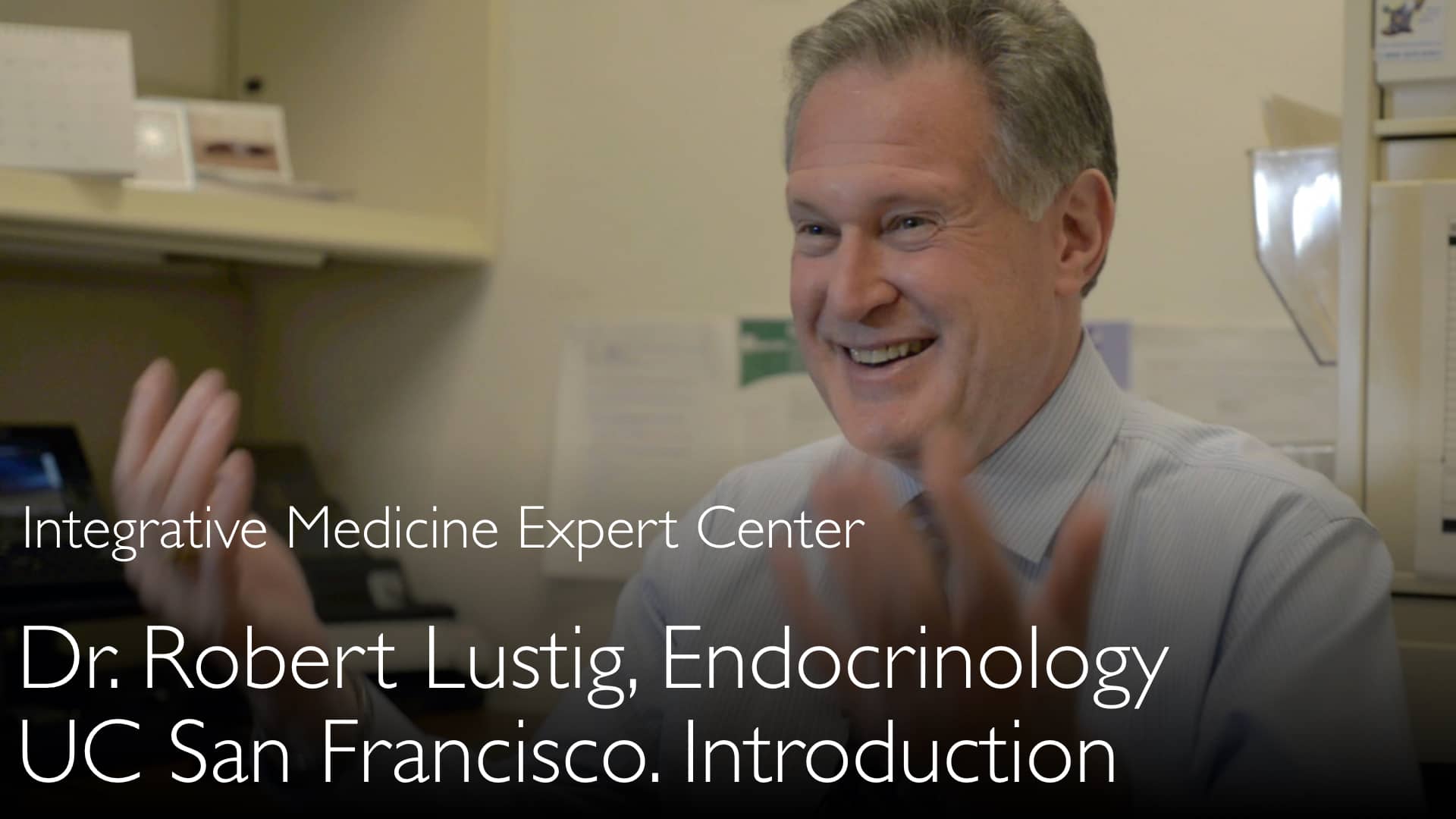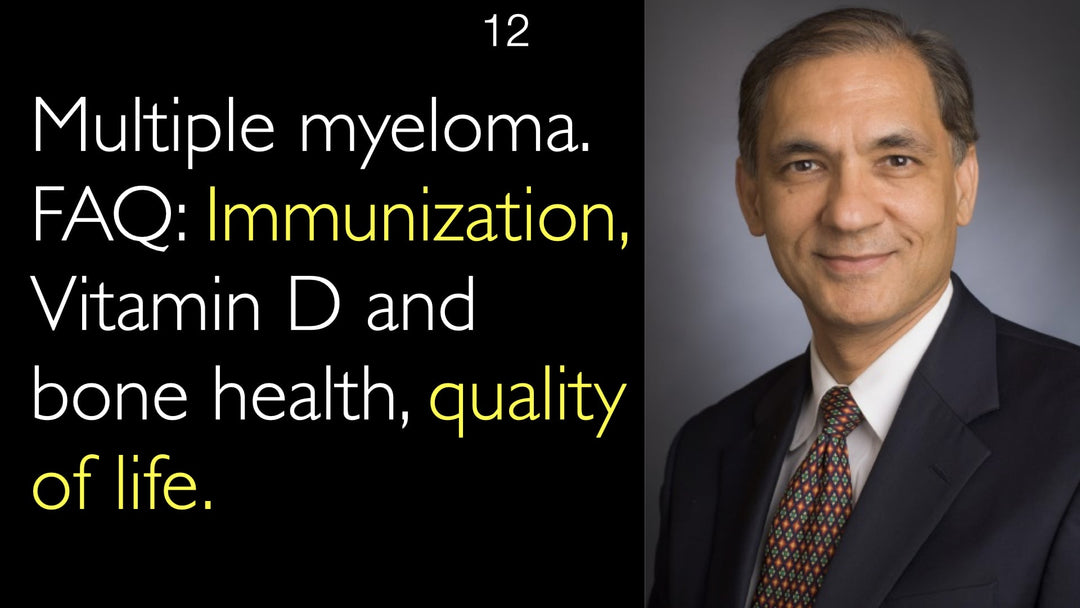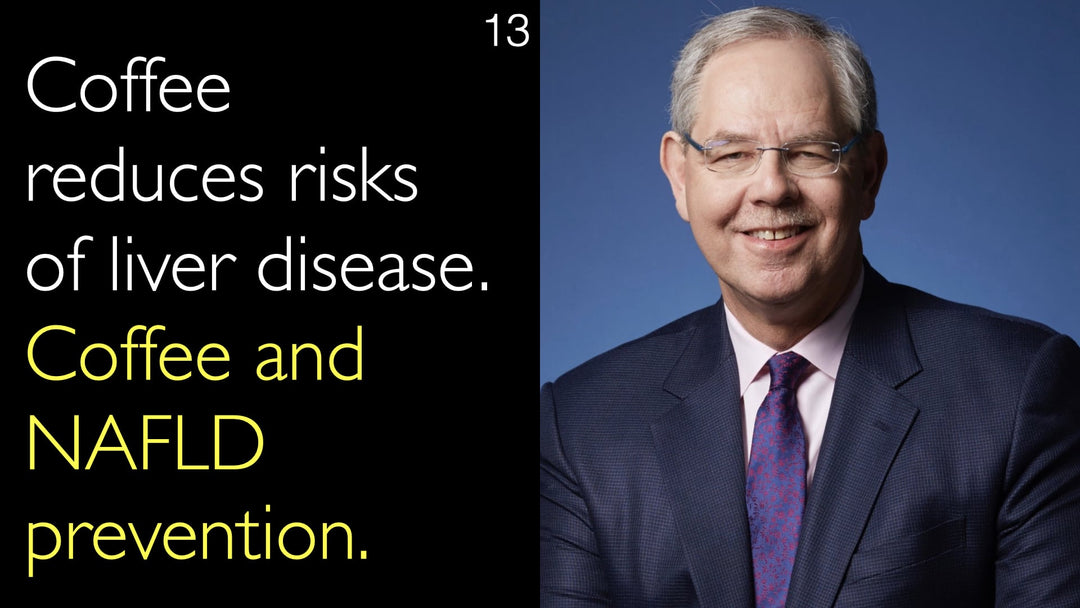Lasten endokrinologian ja ravitsemuksen johtava asiantuntija, lääketieteen tohtori Robert Lustig selittää, miksi kaikkien kalorien samanarvoisuus on vaarallinen myytti. Hän kuvailee yksityiskohtaisesti, kuinka kalorien lähde – olipa se sitten kuituisia manteleita, proteiinia, terveitä rasvoja tai sokeria – vaikuttaa ratkaisevasti siihen, miten keho imee ja hyödyntää energiaa. Tällä on suora vaikutus aineenvaihdunnan terveyteen ja sairastumisriskiin. Tohtori Lustig havainnollistaa asiaa selkeillä esimerkeillä: 160 kalorin määrä manteleita johtaa vain 130 imeytyneeseen kaloriin, kun taas sokerista saatava fruktoosi on ainutlaatuisen haitallista. Se edistää rasvan kertymistä maksaan, insuliiniresistenssiä ja tyypin 2 diabetesta.
Miksi kaikki kalorit eivät ole samanarvoisia: Ravinnon lähteen ja aineenvaihdunnan tiede
Hyppää osioon
- Kalorimyytti paljastuu
- Kuitujen ja imeytymisen vaikutus
- Proteiinin korkea energiakustannus
- Hyvät rasvat vs. huonot rasvat
- Fruktoosi vs. glukoosi: Kriittinen ero
- Suora yhteys sokerin ja diabeteksen välillä
- Täysi transkriptio
Kalorimyytti paljastuu
Neuroendokrinologi ja lääketieteen tohtori Robert Lustig aloittaa tekemällä keskeisen erottelun, joka on ratkaisevan tärkeä ravitsemuksen ymmärtämiselle. Hän toteaa, että vaikka poltettu kalori on aina poltettu kalori, syöty kalori ei ole vain syöty kalori. Kalorien lähde vaikuttaa merkittävästi aineenvaihdunnan terveyteen. Tämä perusajatus kumoaa vanhentuneen ja liian yksinkertaistetun neuvon, jonka mukaan painonhallinta olisi pelkästään "sisään tulevien ja ulos menevien kalorien" kysymys. Tohtori Lustig korostaa, että kalorien alkuperä määrää, minne ne suuntautuvat kehossa ja mitä sairauksia ne saattavat aiheuttaa.
Kuitujen ja imeytymisen vaikutus
Tohtori Robert Lustig käyttää manteleita esimerkkinä havainnollistaakseen, kuinka kuitu muuttaa kalorien imeytymistä. Kun nautit 160 kalorin verran manteleita, et ime itseasiassa kaikkia 160 kaloria. Mantelien kuitu muodostaa suolistoon geelimäisen esteen, joka estää rasvojen ja hiilihydraattien täydellisen imeytymisen. Kuten tohtori Lustig selittää, vain noin 130 näistä 160 kalorista päätyvät verenkiertoon. Loput kalorit jatkavat matkaa ruoansulatuskanavassa ruokkien suoliston mikrobistoa, joka koostuu noin 100 biljoonasta bakteerista. Tämä osoittaa, että ruoan nettenergian tuottoa ei määrää sen pakkauksessa ilmoitettu kalorimäärä vaan sen koostumus.
Proteiinin korkea energiakustannus
Proteiinin aineenvaihdunnallinen käsittely vaatii keholta huomattavan energian, mikä tunnetaan ruoan termisenä vaikutuksena. Tohtori Robert Lustig selventää, että proteiinin metabolisoimiseksi energiaksi kehon on ensin poistettava aminoryhmät proteiinimolekyyleistä. Tämä biokemiallinen prosessi kuluttaa energiaa. Itse asiassa proteiinin sulattaminen vaatii noin kaksi kertaa enemmän energiaa verrattuna hiilihydraattien sulattamiseen. Siksi vaikka proteiini ja hiilihydraatit voivat sisältää saman määrän kaloreita grammalta, kehon saama nettenergia proteiinista on alhaisempi johtuen sen hajottamiseen kuluvaan energiaan.
Hyvät rasvat vs. huonot rasvat
Tohtori Robert Lustig esittää selkeän eron terveellisten ja haitallisten rasvojen välillä, vaikka molemmat sisältävät 9 kaloria grammalta. Toisella puolella ovat omega-3-rasvahapot, joita löytyy villikaloista ja pellavansiemenistä. Näillä rasvoilla on tulehdusta hillitseviä ominaisuuksia, ja ne tukevat sydämen ja aivojen terveyttä. Vastakkaisella puolella ovat keinotekoiset transrasvat. Tohtori Lustig kuvailee transrasvoja "nautittavaksi myrkyksi", koska ihmisen entsyymit eivätkä suoliston bakteerit pysty sulattamaan niitä kunnolla. Tämä sulamattomuus on syy siihen, miksi elintarviketeollisuus käyttää niitä parantaakseen säilyvyyttä, mutta se myös aiheuttaa niiden kertymisen valtimoiden ja maksan seinämiin, mikä edesauttaa suoraan kroonisten sairauksien kehittymistä. Tämä vertailu osoittaa, että kalorien lähde on ensisijainen terveyteen vaikuttava tekijä.
Fruktoosi vs. glukoosi: Kriittinen ero
Tohtori Robert Lustig korostaa tärkeää eroa fruktoosin ja glukoosin välillä. Glukoosi on elämän perusenergian lähde; jokainen kehon solu pystyy metaboloimaan sitä, ja keho säätelee tiukasti verensokeritasoja. Fruktoosi sen sijaan metaboloituu lähes yksinomaan maksassa. Tohtori Lustig toteaa ratkaisevan seikan: "Yksikään biokemiallinen reaktio kehossa ei vaadi ravinnosta saatavaa fruktoosia." Kun sitä nautitaan liikaa, kuten nykyruokavaliossa, jossa on paljon sokeria, maksalla ei ole muuta vaihtoehtoa kuin muuttaa tämä fruktoosi maksarasvaksi. Tämä maksarasvan kertyminen on ensisijainen tekijä insuliiniresistenssin ja aineenvaihduntasairauden kehittymiselle, luoden pohjan diabetekselle.
Suora yhteys sokerin ja diabeteksen välillä
Tohtori Robert Lustig päättelee yksiselitteisillä tiedoilla sokerin haitallisuudesta. Reitti on selkeä: liiallinen fruktoosin nauttiminen johtaa maksarasvan tuotantoon, joka aiheuttaa insuliiniresistenssin. Voittaakseen tämän resistenssin haima joutuu erittämään yhä suurempia määriä insuliinia. Lopulta haima uupuu eikä enää pysty tuottamaan tarpeeksi insuliinia, mikä johtaa tyypin 2 diabetekseen. Tohtori Lustig on jyrkkä, toteaden ettei ole "jos, ja tai mutkia" – sokeri aiheuttaa diabeteksen. Tämä suora syy-seuraussuhde korostaa kriittistä tärkeyttä ymmärtää, että kalori sokerista ei ole sama kuin kalori muista lähteistä, ja sillä on syvällisiä vaikutuksia kansanterveyskasvatukseen ja ruokavalintojen tekemiseen.
Täysi transkriptio
Lääketieteen tohtori Anton Titov: Onko kalori kalori? "Kalori on kalori" -myytin selittää endokrinologi ja merkittävä ravitsemusasiantuntija. Miksi yksi poltettu kalori vastaa toista poltettua kaloria, mutta yksi syöty kalori ei vastaa toista syötyä kaloria? Mikä on suoliston bakteerien rooli kalorien imeytymisessä ihmiskehossa? Esimerkiksi mantelit.
Onko kalori kalori? "Kalori on kalori" -myytti on vain sitä. Kalori ei ole kalori, kun se syödään. Poltettu kalori on poltettu kalori. Kalorien lähde merkitsee paljon. Kaikki kalorit eivät ole samoja. Kalorimyytti on helppo paljastaa, jos katsoo mistä kalorit tulevat. Sulattaaksesi yhden kalorin proteiinia, sinun täytyy polttaa enemmän energiaa.
Onko kalori kalori? Monet kysyvät tänään. "Kalori on kalori" -myytin on purettava lopullisesti. Siksi kaloreiden laskeminen ei merkitse. Kalorien lähde on tärkein terveydelle. Fruktoosista peräisin olevat kalorit aiheuttavat maksarasvan kertymistä ja johtavat sairauksiin. Fruktoosi johtaa insuliinin nousuun ja haiman väsymiseen. Koska kalori ei ole kalori. Sillä on merkitystä mistä kalorit tulevat.
Videohaastattelu johtavan lastenendokrinologian ja ravitsemuksen asiantuntijan kanssa. Lääketieteellinen toinen mielipide vahvistaa, että lapsen lihavuusdiagnoosi on oikea ja täydellinen. Lääketieteellinen toinen mielipide vahvistaa myös, että lapsen lihavuuden hoito on tarpeen.
Lääketieteen tohtori Robert Lustig: Tiedämme nyt, että kalori ei ole vain kalori. "Kalori on kalori" on myytti. Kaikkien on ymmärrettävä se.
Lääketieteen tohtori Anton Titov: Lääketieteellinen toinen mielipide auttaa valitsemaan parhaan hoidon lapsen lihavuuteen. Hanki lääketieteellinen toinen mielipide lapsen lihavuudesta ja ole varma, että hoitosi on paras.
Lääketieteen tohtori Robert Lustig: Monet sanovat: "Kalori on vain kalori. Kalorien lähdellä ei ole merkitystä. Sinun on rajoitettava kaloreita. Sinun on liikuttava enemmän." Onko kalori vain kalori? Poltettu kalori on poltettu kalori. Voit polttaa kalorisi nukkuessasi tai voit polttaa kalorisi voimakkaassa liikunnassa. ATP on kemiallisen energian molekyyli. Kun ATP vapauttaa energiansa, se vapauttaa saman määrän energiaa jokaisesta molekyylistä. Sillä ei ole väliä miten päädyimme ATP:hen. Mutta kun energia on jo muunnettu ATP:ksi, kalori on kalori. Poltettu kalori on poltettu kalori.
Tämä kysymys on tärkeä. Onko syöty kalori syöty kalori? Onko sillä merkitystä mistä kalorit tulivat siinä mielessä minne ne menevät? Onko kalorien lähteellä merkitystä?
Meillä on erittäin hyvät tiedot tästä. Tiedot osoittavat selvästi, että kalori ei ole kalori. Kalorien tyyppi ja lähde ovat tärkeitä hyvälle ravitsemukselle. Mistä nuo kalorit tulevat, määrää minne ne menevät. Se määrää mitä sairauksia ne aiheuttavat samalla.
Lääketieteen tohtori Anton Titov: Annan sinulle täydellisen esimerkin. Aloitetaan mantelilla.
Mutta fruktoosi on toinen asia. Yksikään biokemiallinen reaktio kehossa ei vaadi ravinnosta saatavaa fruktoosia. Ravinnosta saatavalle fruktoosille ei ole tarvetta. Fruktoosia ei aineenvaihdunta kehossa. Fruktoosi metabolioituu vain maksassa. Ruoassa on ylimääräistä fruktoosia. Silloin maksalla ei ole muuta vaihtoehtoa. Maksa muuttaa fruktoosin maksarasvaksi. Maksarasva aiheuttaa kaikki tänään käsitellyt krooniset aineenvaihduntasairaudet.
Glukoosi ja fruktoosi eivät myöskään ole samoja, vaikka ne molemmat ovat sokerissa. Glukoosi saa haiman erittämään enemmän insuliinia. Aivan kuten proteiinipitoiset ruoat kuten mantelit eivät ole samoja. Aivan kuten omega-3-rasvahapot ja transrasvat eivät ole samoja. Fruktoosi sairastuttaa maksasi. Haiman on tuotettava vielä enemmän insuliinia. Lopulta haima palaa loppuun. Hima väsyy tuottamalla liikaa insuliinia liian pitkään. Sitten sinulla on tyypin 2 diabetes.
Meillä on dataa, joka kategorisesti osoittaa, että sokeri aiheuttaa diabeteksen. Ei josja-mutta. Sokeri aiheuttaa diabeteksen.
Lääkäri Anton Titov, MD: Arvostan ja aplodeerin suuresti sitä, mitä teette. Tehtävänne on auttaa ihmisiä oppimaan. Minun tehtäväni on opettaa ihmisiä. Sitä me tänään teemme.
Lääkäri Robert Lustig, MD: Ihmisten on ymmärrettävä, että heillä on vastuu. Heidän on ymmärrettävä, että he voivat ottaa elämänsä haltuun, jos niin haluavat.
Ihmisten on oltava itsevarmoja ja vastuussa elämästään. Ihmisten on tehtävä omat päätöksensä elämässä. Mutta kuten missä tahansa sodassa, sinun on seurattava tekosiasi. Sinun on seurattava, mihin astut. Tämä on sota. Se on sota lompakkojemme ja terveytemme välillä. Kun ihmiset ymmärtävät sen, he todennäköisesti valitsevat oikean puolen. Se on tärkeää tietää.
Lääkäri Anton Titov, MD: Lääkäri Robert Lustig, MD, kiitoksia erittäin oivaltavasta ja kiehtovasta keskustelusta. Kiitoksia siitä, että hahmotilitte tieteellisessä yhteisössä tunnetun: sokeri on erittäin myrkyllistä määrissä, jotka ylittävät luonnossa esiintyvät. Ylimääräinen sokeri on erittäin myrkyllistä, kuten mikä tahansa valkoinen jauhe.
Lääkäri Robert Lustig, MD: Aivan kuin mikä tahansa muu jauhe. Kokalehdet ovat lääkinnällisiä; kokaiini on riippuvuutta aiheuttava huume. Oopiumi on lääkinnällinen; heroiini on riippuvuutta aiheuttava huume. Valitse valkoinen jauheesi. Tämä (sokeri) on vain halpa.
Lääkäri Anton Titov, MD: Kiitoksia tästä keskustelusta. Kiitos. Onko kalori kalori? "Kalori on kalori" -myytti. Videohaastattelu lääkäri Robert Lustigin kanssa. Rasvasta, proteiinista ja sokerista saatavat kalorit – ovatko ne samanarvoisia?








